The bigger the problem is, the longer you need to spend in the river,” says Glenda Powell, fly fishing instructor and world champion of the sport in 2006. Fishing, she says, is not actually about catching fish, but about being at one with nature.
“You’re going through the motions of trying to catch something that is very hard to catch.
“When something does eventually pull on the end, it’s like a drug. The tug is the drug. When you are there fishing you are looking at nature and actively doing something,” Glenda tells Irish Country Living by the fireside at her fishing hut at the Blackwater Salmon Fishery just outside Fermoy.
“While we are there the otters come swimming past. The Kingfishers sit on the end of the rod. You are at one with nature. You become aware of the seasons.
“You know what’s around you and you stand there long enough to experience how beautiful it really is.
“And then out of the blue, when you are not expecting it, something grabs hold of your line.
“That’s the best part. It is difficult to describe to someone you has never experienced that before. But when you do it once, you get it.”
Scotland
Originally from Northern Ireland, Glenda moved to Scotland and qualified as a fly casting instructor at just 19 years of age. She fished in the Scottish Ladies International Flyfishing team, and went on to manage the Irish Ladies team. But when she moved to the Blackwater in the south east, Glenda found home.
She rents the fishing rights along five miles of the river Blackwater. Glenda’s partner Noel runs the business with her and acts as a host when Glenda is overseas and explains in detail about the fishery, fishing techniques and maintains the fishery by cutting the grass etc. The salmon fishing season runs from February to the end of September on the Blackwater in Ireland.
We travel to places so remote. We have one satellite phon
“We have equipment for people to use if they don’t wish to bring their own. I don’t charge for the equipment because it adds more expense and I like people to understand that what they need to pay for is the fishing, a guide – if they want a guide – and they need to pay for the State salmon fishing license which is a Government tax.”
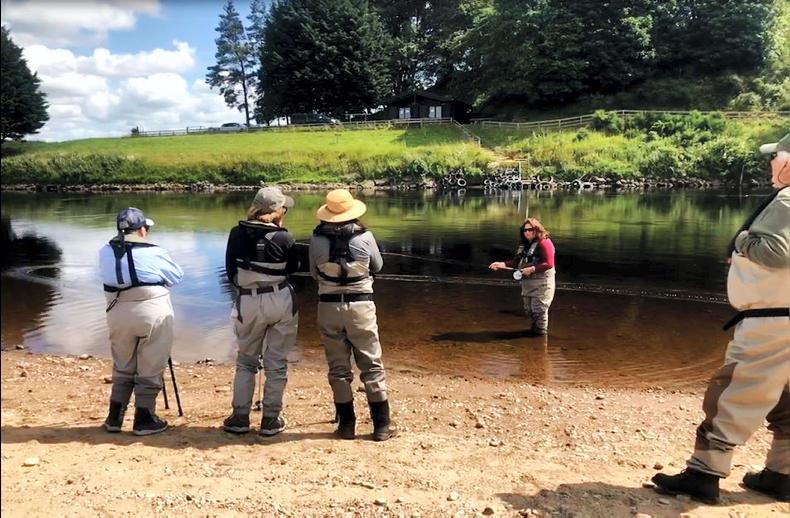
Glenda moved to Scotland and qualified as a fly casting instructor at just 19 years of age.
As Glenda’s children Anna and Ian are now teenagers, she has started running fishing trips for groups to places like Patagonia and Greenland. These guided trips take up to 50-60 days per year and she also demonstrates at numerous shows around the world.
“We travel to places so remote. We have one satellite phone, we are up a mountain three hours from the nearest person by boat. I make sure that people who wish to join me on these trips understand the fitness levels required for each trip.
“It’s a nice way to meet people, I am teaching people who want to be taught. I am a teacher seeing people at their best, outside their work life.
For me we might catch the biggest fish here, but the smallest brown trout in Kerry in a mountain lake gives me the same excitement
“However, one of my biggest jobs is to manage their expectations. These are wild fish, they are Atlantic salmon, extremely difficult to catch. You could fish for a week and not catch anything.
“When you get disappointed people then the accommodation isn’t good enough, the roads are bad and everything goes downhill. So I try to manage those expectations before they get on the aeroplane.”
Regardless of where she catches her fish or what size it is, Glenda says the thrill is always the same. “For me we might catch the biggest fish here, but the smallest brown trout in Kerry in a mountain lake gives me the same excitement. I just love fishing. There is no security in my line of work, I have struggled all my life to make a living. Nobody would work this hard for the hours we put in, it has to be a passion.”
It is illegal to sell a fish that you catch and Glenda is keen to conserve the fish. She rarely eats salmon, only when there is an extra special occasion for her family.
Story of salmon
Glenda explains that wild salmon are pink because they eat crustaceans.
“If you really did get to try a proper wild salmon there is really no comparison,” she says.
Salmon start off in the river as a little egg, where they spend two years. They then migrate to the sea to find more food.
So they head off to Iceland and Greenland. They feed up there and then they come back to the same river they were born in, to the same place, to spawn.
“The whole time they are in this river they don’t eat because they are ferocious feeders and need a lot to eat.
“They know somehow that if they were to eat and try to sustain their body weight, they would eat everything in the river.
In the Shannon and the Lee, big hyrdro dams were built for electricity so the salmon can’t pass them to get up the river
“They would eat all of the food for their offspring and they would eat last year’s offspring.”
The salmon come into the river from February onwards, and their bodies shut down as they stop eating.
However, they don’t spawn until November. When a salmon comes in to the river it is silver, it loses its colour the longer it is in the river.
The male salmon pumps the pigment out of its flesh into its skin to attract a mate. The female salmon pumps the pigment into her eggs.
“In the Shannon and the Lee, big hyrdro dams were built for electricity so the salmon can’t pass them to get up the river.
“The biggest problem for the salmon at the moment is mortality at sea and getting to the sea, because if they don’t survive, they won’t come back to the river to spawn.”
Nature
Glenda believes that fishing is an important outlet for young people in today’s society, particularly when instant gratification through use of smartphones leaves people with little patience.
Glenda says fishing has helped her through tough times in life and gives her grounding. As part of her work she imparts her knowledge of fishing on children that have previously been in trouble with the law.
I find that at all times in my life the river has been my security blanket
“I think our problem is that the young people today don’t have the patience to wait for the tug. I find that at all times in my life the river has been my security blanket. Through divorce, people dying, whatever it is I’ll just go to the river.
“We’ve had inner city kids out here on the Blackwater and they loved it. I often think, if kids from troubled areas like that could have found a little bit of solitude would they be in the trouble they’re in?”
The bigger the problem is, the longer you need to spend in the river,” says Glenda Powell, fly fishing instructor and world champion of the sport in 2006. Fishing, she says, is not actually about catching fish, but about being at one with nature.
“You’re going through the motions of trying to catch something that is very hard to catch.
“When something does eventually pull on the end, it’s like a drug. The tug is the drug. When you are there fishing you are looking at nature and actively doing something,” Glenda tells Irish Country Living by the fireside at her fishing hut at the Blackwater Salmon Fishery just outside Fermoy.
“While we are there the otters come swimming past. The Kingfishers sit on the end of the rod. You are at one with nature. You become aware of the seasons.
“You know what’s around you and you stand there long enough to experience how beautiful it really is.
“And then out of the blue, when you are not expecting it, something grabs hold of your line.
“That’s the best part. It is difficult to describe to someone you has never experienced that before. But when you do it once, you get it.”
Scotland
Originally from Northern Ireland, Glenda moved to Scotland and qualified as a fly casting instructor at just 19 years of age. She fished in the Scottish Ladies International Flyfishing team, and went on to manage the Irish Ladies team. But when she moved to the Blackwater in the south east, Glenda found home.
She rents the fishing rights along five miles of the river Blackwater. Glenda’s partner Noel runs the business with her and acts as a host when Glenda is overseas and explains in detail about the fishery, fishing techniques and maintains the fishery by cutting the grass etc. The salmon fishing season runs from February to the end of September on the Blackwater in Ireland.
We travel to places so remote. We have one satellite phon
“We have equipment for people to use if they don’t wish to bring their own. I don’t charge for the equipment because it adds more expense and I like people to understand that what they need to pay for is the fishing, a guide – if they want a guide – and they need to pay for the State salmon fishing license which is a Government tax.”

Glenda moved to Scotland and qualified as a fly casting instructor at just 19 years of age.
As Glenda’s children Anna and Ian are now teenagers, she has started running fishing trips for groups to places like Patagonia and Greenland. These guided trips take up to 50-60 days per year and she also demonstrates at numerous shows around the world.
“We travel to places so remote. We have one satellite phone, we are up a mountain three hours from the nearest person by boat. I make sure that people who wish to join me on these trips understand the fitness levels required for each trip.
“It’s a nice way to meet people, I am teaching people who want to be taught. I am a teacher seeing people at their best, outside their work life.
For me we might catch the biggest fish here, but the smallest brown trout in Kerry in a mountain lake gives me the same excitement
“However, one of my biggest jobs is to manage their expectations. These are wild fish, they are Atlantic salmon, extremely difficult to catch. You could fish for a week and not catch anything.
“When you get disappointed people then the accommodation isn’t good enough, the roads are bad and everything goes downhill. So I try to manage those expectations before they get on the aeroplane.”
Regardless of where she catches her fish or what size it is, Glenda says the thrill is always the same. “For me we might catch the biggest fish here, but the smallest brown trout in Kerry in a mountain lake gives me the same excitement. I just love fishing. There is no security in my line of work, I have struggled all my life to make a living. Nobody would work this hard for the hours we put in, it has to be a passion.”
It is illegal to sell a fish that you catch and Glenda is keen to conserve the fish. She rarely eats salmon, only when there is an extra special occasion for her family.
Story of salmon
Glenda explains that wild salmon are pink because they eat crustaceans.
“If you really did get to try a proper wild salmon there is really no comparison,” she says.
Salmon start off in the river as a little egg, where they spend two years. They then migrate to the sea to find more food.
So they head off to Iceland and Greenland. They feed up there and then they come back to the same river they were born in, to the same place, to spawn.
“The whole time they are in this river they don’t eat because they are ferocious feeders and need a lot to eat.
“They know somehow that if they were to eat and try to sustain their body weight, they would eat everything in the river.
In the Shannon and the Lee, big hyrdro dams were built for electricity so the salmon can’t pass them to get up the river
“They would eat all of the food for their offspring and they would eat last year’s offspring.”
The salmon come into the river from February onwards, and their bodies shut down as they stop eating.
However, they don’t spawn until November. When a salmon comes in to the river it is silver, it loses its colour the longer it is in the river.
The male salmon pumps the pigment out of its flesh into its skin to attract a mate. The female salmon pumps the pigment into her eggs.
“In the Shannon and the Lee, big hyrdro dams were built for electricity so the salmon can’t pass them to get up the river.
“The biggest problem for the salmon at the moment is mortality at sea and getting to the sea, because if they don’t survive, they won’t come back to the river to spawn.”
Nature
Glenda believes that fishing is an important outlet for young people in today’s society, particularly when instant gratification through use of smartphones leaves people with little patience.
Glenda says fishing has helped her through tough times in life and gives her grounding. As part of her work she imparts her knowledge of fishing on children that have previously been in trouble with the law.
I find that at all times in my life the river has been my security blanket
“I think our problem is that the young people today don’t have the patience to wait for the tug. I find that at all times in my life the river has been my security blanket. Through divorce, people dying, whatever it is I’ll just go to the river.
“We’ve had inner city kids out here on the Blackwater and they loved it. I often think, if kids from troubled areas like that could have found a little bit of solitude would they be in the trouble they’re in?”




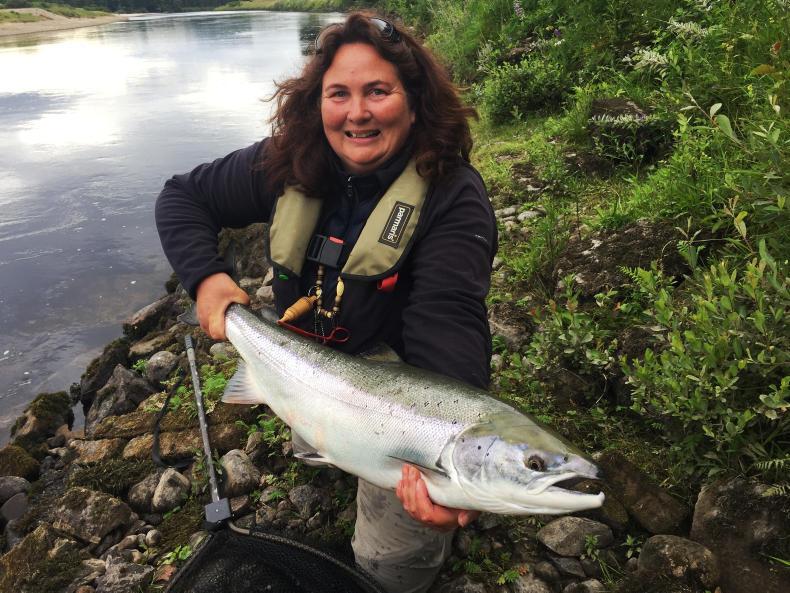

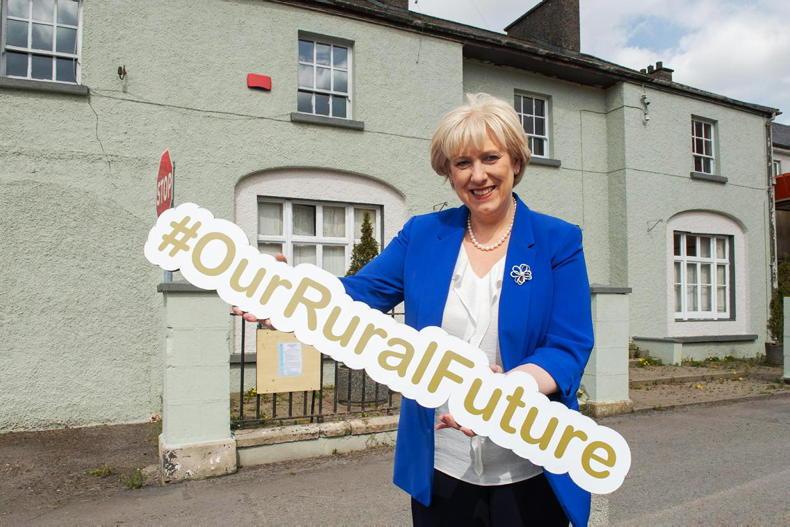
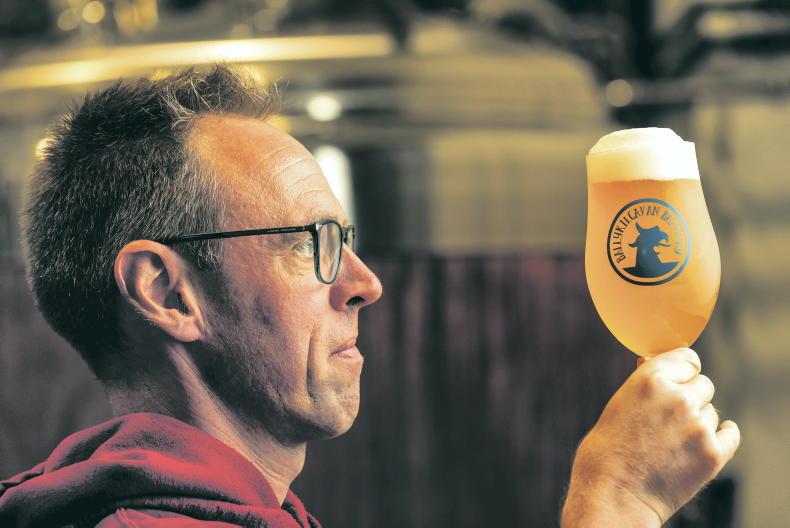
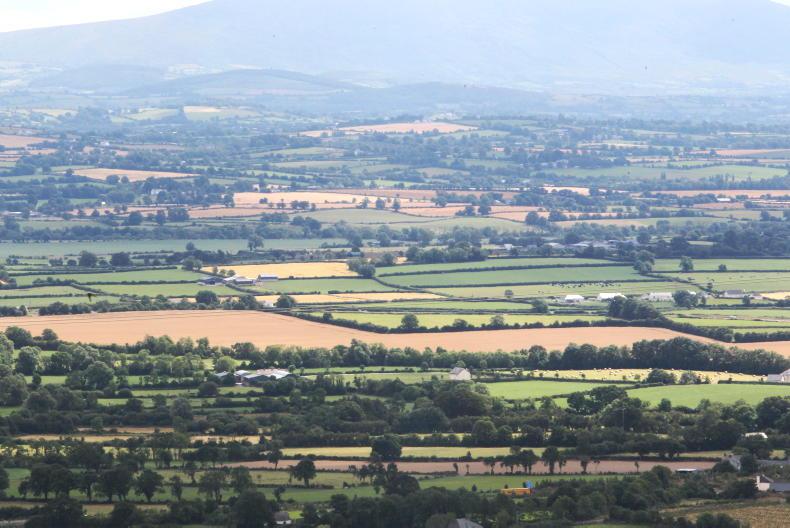
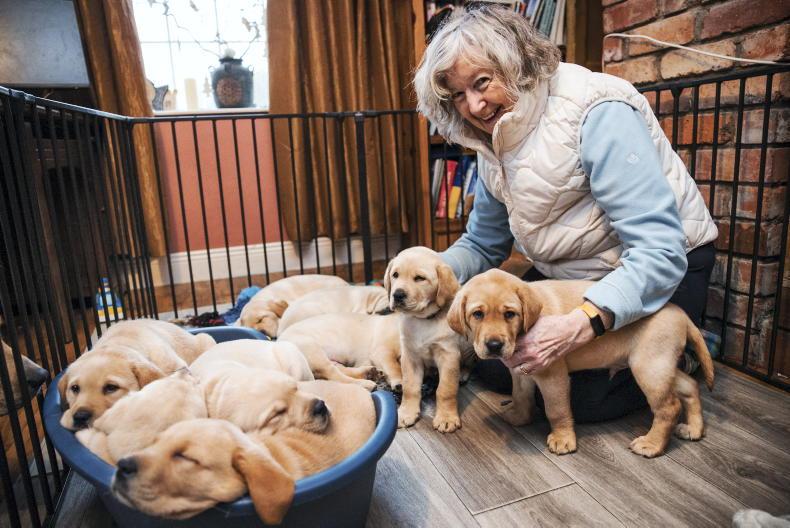
SHARING OPTIONS